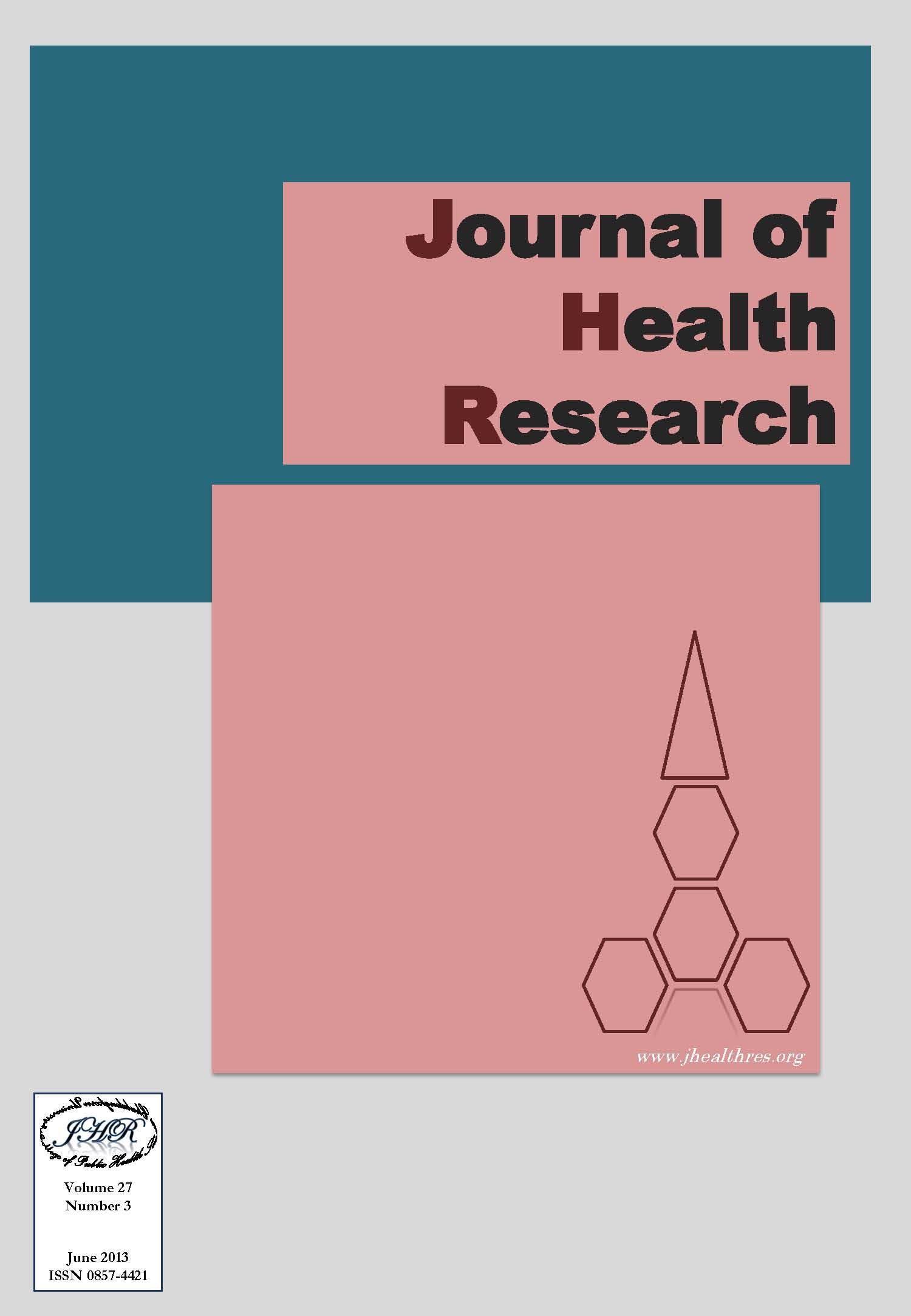Knowledge, Attitude and Practices in Insecticide Use, Serum Cholinesterase Levels and Symptom Prevalences among Shogun Orange Farmers in Khao-Phanom District, Krabi Province Thailand, 2012
Keywords:
Insecticide, Insecticide-related symptoms, Serum cholinesterase, Health effects, Orange farmersAbstract
A cross-sectional study was conducted among Shogun orange farmers in Khao-phanom district, Krabi province in April 2012. The study aims were to study the association between insecticide-related symptoms with socio-demographic characteristics and insecticide use and to understand the association between insecticide-related knowledge, attitude, and practices with symptoms and serum cholinesterase (SChE) levels. The study population included 128 Shogun orange farmers and from this the sample size was calculated as 68 to detect the observed differences with alpha = 0.05 and power = 80 %, used open Epi version 2 based on a previous study. Ninety two subjects were included and this was sufficient to detect most of the pesticide exposure-related differences in health effects (neuromuscular symptoms). The questionnaire was modified from those used in the Agricultural Health Study in America and in another local study and the reliability of the instrument tested. The survey had four parts - 1) Socio-demographic characteristics, 2) 15 close-ended questions regarding knowledge in insecticide use 3) 26 questions regarding attitude in insecticide practice and 4) 34 questions regarding practices in insecticide use. The farmers were also screened for serum cholinesterase levels which were graded as- normal (≥ 100 units/ml), safe (87.5-99.9 units/ml), risky (75-87.4 units/ml) and unsafe (≤75 units/ml) levels. The chi square test was used to evaluate the relationship between knowledge, attitude and practices and cholinesterase levels. The survey revealed that 51.1% of farmers used insecticides for more than 5 years, and 56.5% used insecticide more than 15 times a year, dissolved in water on average of 252.17 cc/rai. 62.0% sprayed insecticide > 4 hrs a day and 88.0% had most recently contacted insecticides < 7 days ago. 83.7% of subjects had unsafe SChE levels and 85.9% of farmers used carbamates. Farmers who usually used personal protective equipment had better SChE levels than those who did not (negatively association, p=0.001). Knowledge and practice of insecticide use had limited association with symptoms but good attitude had lower insecticides related symptoms than average or low attitude (negatively association) - neuromuscular (p=0.008), respiratory (p=0.047), eyes (p=0.021) and skin (p=0.028). Practice of insecticide use and attitude were positively associated (p<0.001) but knowledge was not associated with practice (p=0.529). The study reveals that Shogun orange farmers in Khao-Phanom district, Krabi province, were exposed to high levels of pesticides. Although they had knowledge about insecticides, they did not have safe practices. In order to promote farmers' health, personal protective equipment use, and safe practices in insecticide use should be reinforced.






